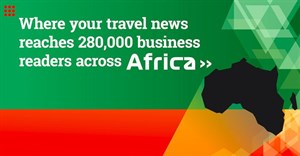Trending




 Sabre EMEA 2024 Awards: Razor PR, Retroviral top SA agenciesDanette Breitenbach
Sabre EMEA 2024 Awards: Razor PR, Retroviral top SA agenciesDanette Breitenbach
Elections 2024
Jobs
- Graphic Designer Johannesburg
- Digital Marketer Cape Town
- Baker - Commercial Bakery Vereeniging
- General Manager Vereeniging
- Front Desk Coordinator/Receptionist Vereeniging
- Freelance Graphic Designer/Web Designer/Reel Creator Cape Town
- Mid-Senior Travel Consultant Cape Town
- Partnerships and Business Development Manager Cape Town
- Head of Growth Cape Town
- Tourism Update - Sales Executive (Junior to intermediate) Johannesburg
Corporate travel: Managing risk and traveller friction

It can be easy to forget that all it takes is a lost passport, a misunderstanding with local authorities, an unforeseen security threat or natural disaster for things to go horribly wrong.
These risks might not be new, but they are increasingly harder to predict. Certain destinations that were once perceived to be 'safe' or low risk, can now be a higher risk. However, it has also meant that companies are striving to adapt to the modern traveller’s needs and expectations.
What does the research say
According to the results of an International SOS and Control Risk survey, some 63% of corporations’ decision-makers perceive travel risks to have increased in the past year. The Americas and Australasian regions stand out with 78% and 72% respectively, reporting travel risk as a major factor in business travel during 2017.
The survey found that travel plans, globally, were predominantly changed due to concerns over security threats (58%), followed by natural disasters (43%). This was consistent across the globe, apart from the Americas where natural disasters, ranked first, and security threats, second. These were followed by travel risk ratings (42%) and civil unrest (34%).
Risk response
Organisations have in turn responded to increased risks with the introduction of risk mitigation techniques.
In Africa, specifically, the most frequent step taken in response to travel health and security concerns was the introduction of travel risk assessment in the travel approval process, with 38% of corporates introducing pre-trip and during trip advisory emails in 2017.
African-based organisations said that educating employees about travel risks (49%), communicating during a crisis (49%), tracking employee travel (47%) and confirming that employees have read pre-travel information (34%) were major challenges faced by their organisations in ensuring the health and security of their travellers.
Thus, looking at threats, such as the outbreak of the Plague in Madagascar, timely insight is critical to travellers and organisations to avoid potentially disastrous consequences.
Widening the scope
While the preventative agenda in medical and travel risk mitigation is clearly on the rise, the statistics revealed that many organisations may be missing the “bigger picture”.
According to the International SOS research, roughly only 9% of organisations globally have an updated sustainability programme to include in their travel risk policy. In addition, only 10% of corporates have introduced a wellbeing policy, falling at the bottom of risk mitigation techniques implemented in 2017 for their mobile workforce. The survey also showed that there is a rising concern amongst corporate travellers about the risk of pollution in the destinations they are visiting, something that should perhaps be a consideration in travel policy in future.
From the above stats, it is clear that as much as corporations need to prepare for external risks, paying attention to the internal aspect of the duty of care like employee wellness and traveller friction is equally as important.
Moreover, a topic that has been highlighted frequently in recent times is the mental health of frequent business travellers. Travelling through different time zones, lack of rest and poor diet, a lack of work/life balance and social isolation from friends and family have been identified as the top stress factors for business travellers, along with having to contend with different organisational cultures or structures.
Considerations should also be given to travellers who have shorter but frequent trips rarely see their workload reduced to offset the time away from their desk. This can produce anxiety as work continues to accumulate, while the impact on life at home through the loss of a family role and an imbalance in domestic responsibility can be significant. Further measures cited by travel managers in a 2017 survey conducted by ABTA and FCM Travel Solutions was to include catering to business travellers’ needs better within the travel policy through the inclusion of sharing economy options, bleisure opportunities and internal wellness programmes.
A consideration for South African corporates, in light of the real threat of traveller friction, is to create a ‘freedom within framework’ approach which allows the individual traveller a certain degree of freedom within a dictated selection of options that fit the corporation’s travel policy. For example, instead of having a strict policy of only opting for the cheapest flight for long-haul flights, include flexible considerations like the times your traveller departs and lands.
Regardless of how daunting some aspects of travel risk management and managing traveller friction might be, large corporations should know that professional and skilled help, such as that offered by FCM Travel Solutions, is available to help manage all aspects of corporate travel.
Top tips to mitigate your risk:
1. There are five stages of travel risk management (TRM): identifying the risk, preparing the traveller, tracking the traveller, communication and response. Each should be included in any TRM plan.
2. Risk varies according to location, environment and circumstance. Make sure the risks in each location your traveller's visit is visible – not just the life-threatening ones. Just knowing where a traveller is, doesn’t mean you have a workable plan in place to help when things go wrong. Make it clear to the traveller what those risks are, what measures are being taken in the interests of their safety.
3. Prepare your travellers before they travel. Make sure they have the latest advice on vaccination requirements and where to get them. Educate them on potential health risks, how to prevent them and what to do if they do fall ill whilst travelling on business.
4. It’s important that health response plans cover extreme eventualities such as a country closing its borders due to disease outbreak, but also more everyday risks such as traffic accidents and personal theft. Travellers need to know what action to take and the support they will receive in these circumstances.
5. Having a TRM plan is great, but response processes, communication channels and traveller perceptions of the available support need to be checked and reviewed regularly. If they don’t work, you could be in real trouble.
6. Make use of available technologies to help support and manage your TRM plan. Your travel management company should be able to guide you on what systems are available and work with you to review or implement your TRM solution supported by their own Customer Crisis Plan.











